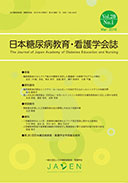Volume 22, Issue 2
Displaying 1-5 of 5 articles from this issue
- |<
- <
- 1
- >
- >|
-
2018Volume 22Issue 2 Pages 77-85
Published: September 20, 2018
Released on J-STAGE: December 28, 2018
Download PDF (462K)
-
2018Volume 22Issue 2 Pages 86-98
Published: September 20, 2018
Released on J-STAGE: December 28, 2018
Download PDF (479K)
-
2018Volume 22Issue 2 Pages 99-107
Published: September 20, 2018
Released on J-STAGE: March 01, 2019
Download PDF (449K)
-
2018Volume 22Issue 2 Pages 108-118
Published: September 20, 2018
Released on J-STAGE: March 01, 2019
Download PDF (520K)
-
2018Volume 22Issue 2 Pages 119-128
Published: September 20, 2018
Released on J-STAGE: March 01, 2019
Download PDF (947K)
- |<
- <
- 1
- >
- >|
